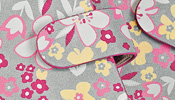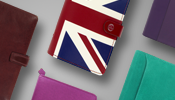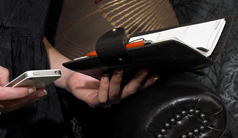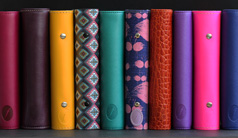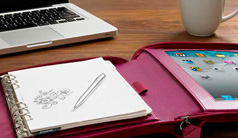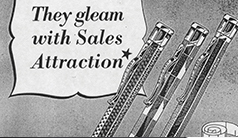Europe & Africa
North America
Create an account
Register for a Filofax account today:
- Create wishlists
- Securely store multiple addresses
- Track your orders
- Get exclusive product, promos and previews with the Filofax newsletter
Log in with facebook
For the simplest shopping expeirience, we recommend logging in with Facebook. We will never post to your timeline or news feed without your permission.
A Brief History
The popularity of Filofax over the past decade has naturally led many people to believe it is a relatively new concept. Yet its origins go back as far as the First World War.
In 1921, a London based company was formed to market personal organisation systems in the UK by mail order. In 1930 they registered the trademark "Filofax", the name having derived from the description "file of facts".
The business continued to grow and by 1987 had a retail network of 1250 outlets in the UK alone. Prestigious stores around the world stocked Filofax, Harrods and Harvey Nichols in London, Neiman Marcus and Bloomingdales in the US, Bon Genie in Switzerland, Galleries Lafayette in Paris and Seibu in Japan amongst others
The Filofax personal organiser had developed from a simple loose-leaf diary and notebook into an indispensable organiser and status symbol for the 80s.
In 2001 the Letts Filofax Group was formed after Charles Letts and Company Limited aquired the Filofax Group.
In 2012 the company was acquired by HSGP Investments.
In 2014, Filofax Ltd and Charles Letts & Co Ltd become one entity under a new company name, FLB Group Ltd.
The many roles of Filofax over the years
Click the images below to learn more about the many roles Filofax has played over the years.
Engineers Handbook
The concept of the personal organiser originates from Philadelphia (USA) when a Canadian engineer, J C Parker, invented a loose-leaf system to hold engineering data in a small portable binder, replacing over-sized technical handbooks that had become too big to carry. The system, originally called LEFAX became a bible to power plant engineers who could adapt the binders by replacing pages to suit each occasion.
Military Issue
Following the First World War, Filofax organiser usage started to grow amongst military officers. By the Second World War they had become standard issue at the Queens Military Academy, Sandhurst and were a compulsory purchase at the British Army Staff College in Camberley.
Company Lifeline
The forward thinking of one Filofax employee ensured the brand lived on to become the household name it is today. Grace Scurr joined the company between the two world wars as a temporary secretary. As a back up to the office filing system, she listed all the company's supplier and customer details in her Filofax organiser which she took home with her every evening. This foresight proved invaluable when the company premises were destroyed during the Blitz as she was able to rebuild the office from her notes and the company was back in business within days.
80's Status Symbol
Filofax became a symbol of the materialistic, work obsessed 80s. Along with the early mobile phones and fast sports cars, owning a Filofax organiser was a badge of success for hard working career minded people, showing the world you had a life worthy of organisation. City workers and high flying executives typify the users of the era.
Lifestyle Balance
A new era dawns and brings a different set of priorities and pressures. Making time became as, if not more, important than making money and taking control of your life became a well-established value. Filofax represented a full and balanced life where you made time for yourself and your family and friends, as well as working and managing day to day chores. Working mothers became advocates, using their organisers to juggle complex lifestyles.
Tech Companion
As more and more people discover the benefits of using paper and technology side by side, Filofax has evolved it’s range to include electronic accessories. The e-Accessories collection includes organisers with iPad holder and removable ring mechanism, iPad, iPhone and tablet covers, and portfolios for carrying every day essentials.























 United Kingdom (£)
United Kingdom (£)












